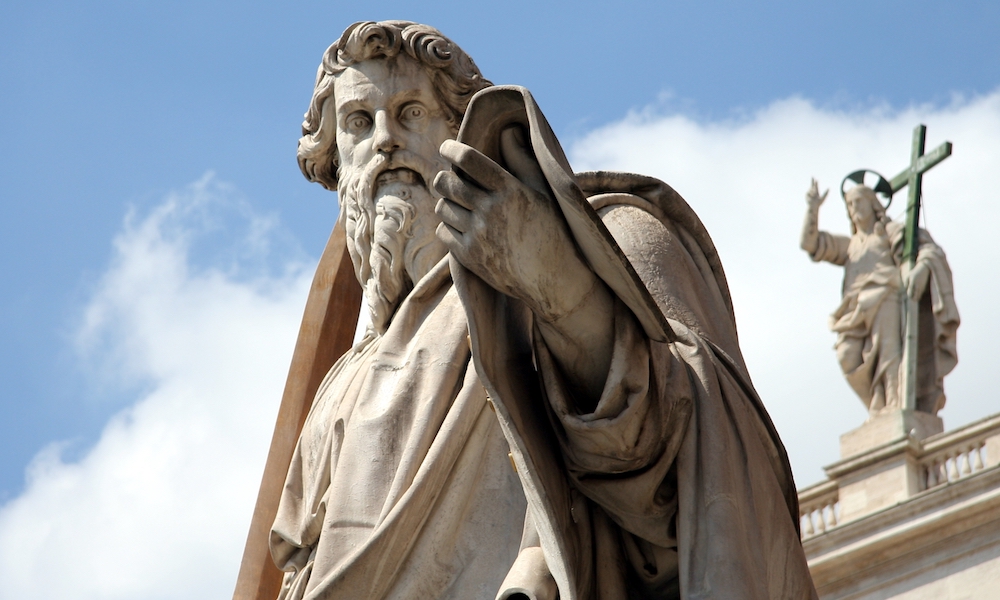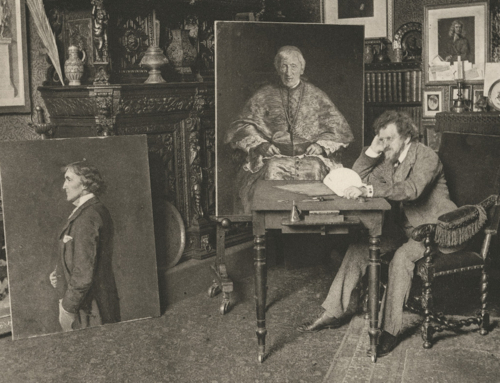I have long been puzzled by how little modern Christians seem to know or care about the person of Saint Paul, especially since he is one of the most potent and preponderant personalities in all of salvation history.
And that’s saying something.
The number of really interesting characters that figure in salvation history is nothing short of astounding—and the disparity between their personalities, even more so. If there is a touch of wildness in one, there is a quasi-whimsical (or is the word, mystical?) flair in another. Whether they be saints or sinners, the persons and personalities through which God works out our salvation is wondrous indeed.
But I should like to think that Paul was not merely one historical figure among many, nor is he just one saint among the rest; there is a particularity about his influence within salvation history that cannot be ignored. We moderns, or for that matter all Christians of every time and place, will not know the height and breadth of his influence until death, but we can nonetheless ponder his person—here and now—all the same. For even here, in this valley of tears, we can appreciate the unique personality that was his, or some semblance of it, without ever having met the man behind the name. After all, his was a personality that, in many respects, is still being felt by the Church, and is still being felt by both you and me—such was his influence upon salvation history.
So what was it about Paul that made his personality so potent and preponderant?
I believe it’s quite simple, actually. Paul’s personality was animated by a great principle, one that was engraved upon his heart from without. Practical problems arose out of it, as they arise out of many such things pertaining to religion or the like. Once received, it could not be ignored, dismissed, or rejected. It was one of those life-altering, horizon-expanding ideas or experiences which renders the remainder of life definitively other than all that had come before. Indeed, the life he had lived prior to its reception was but a thing of the past. This was a principle that demanded—required, even—adherence, no matter the practical problems that had arisen in its wake. All the questions he sought to settle were born of this principle; as such, they were the kinds of questions worth settling.
For Paul, the great principle to which I refer came from above, rather than from within; it was first received by him on the road to Damascus, and received by all Christians in due time. It was not born of any worldly concern, since it was a gift from God, meant to galvanize this man toward things far exceeding human imagination or design. It was a word that gave direction to his already exceptional powers of intellect and will.
The principle that best explains the personality of St. Paul is simply this: Jesus of Nazareth has risen from the dead.
Sure, Paul was, by his own admission, zealous for the Lord (Gal 1:14; cf., Phil 3:12–14). And this zeal, coupled with a gifted mind, likely made for an intense person of formidable stature and influence. But beyond these natural strengths, the truth of Christ’s Resurrection imbued his entire being; so much so, that one cannot think of Paul without thinking of the Risen One as well. And lest we forget, the event of the Resurrection brought death to the zealous man named Saul, only to give life to the man who would forever be remembered as Paul, the Apostle to the Gentiles (Gal 2:20).
It is this same principle—this same resurrected person—that continues to animate the Church and her members today. The more this principle affects us, the more it animates us, the more Pauline our personality becomes in turn.
✠
Image: Photo by AngMoKio (CC BY-SA 2.5)







